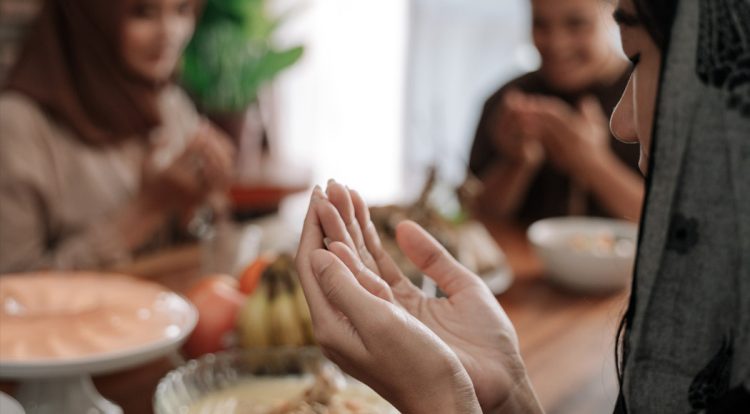The Profound Significance of Fasting in Islam: A Contemporary Perspective

Fasting holds a sacred place in the Islamic faith, serving as a pillar of devotion and spiritual discipline. The practice of fasting during the month of Ramadan is a cornerstone of Islam, observed by millions of Muslims worldwide. While its roots trace back to ancient religious traditions, the contemporary significance of fasting in Islam is deeply rooted in spiritual, physical, and communal dimensions.
Spiritual Reflection and Self-Discipline:
At its core, fasting during Ramadan is a manifestation of spiritual reflection and self-discipline. Muslims abstain from food, drink, and other physical needs from dawn to sunset, creating an atmosphere of introspection and mindfulness. This period of restraint fosters a heightened awareness of one’s actions, thoughts, and intentions, encouraging individuals to cultivate virtues such as patience, gratitude, and humility.
The act of fasting transcends mere abstention from physical needs; it symbolizes a conscious effort to purify the soul and strengthen the connection with the divine. By refraining from worldly pleasures, Muslims aim to detach themselves from material desires and focus on their spiritual journey. The heightened sense of self-discipline developed during Ramadan extends beyond the month, influencing daily habits and fostering personal growth.
Physical Detoxification and Health Benefits:
While the primary purpose of fasting in Islam is spiritual, the physical aspects of the practice should not be overlooked. Fasting provides an opportunity for the body to undergo a natural detoxification process, allowing the digestive system to rest and recharge. The controlled fasting period aids in cleansing the body from toxins, promoting overall health and well-being.
Research has shown that intermittent fasting, a concept closely aligned with Ramadan fasting, may have several health benefits, including improved metabolism, weight management, and enhanced cardiovascular health. Muslims engage in this practice not only as an expression of faith but also as a means to promote physical health and resilience.
Community Bonding and Solidarity:
Ramadan is a month of communal worship, shared experiences, and acts of kindness. Fasting fosters a sense of solidarity among Muslims as they collectively engage in the same spiritual practice. The pre-dawn meal (suhoor) and the evening meal to break the fast (iftar) become opportunities for families and communities to come together, reinforcing bonds and promoting a sense of unity.
The act of fasting instills empathy and compassion for those who may face hunger on a daily basis. Through this shared experience of abstaining from food, Muslims develop a deeper understanding of the struggles faced by the less fortunate, motivating them to engage in acts of charity and social responsibility. Many Muslims use Ramadan as a time to contribute to community projects, feed the hungry, and support charitable initiatives.
Reaffirmation of Faith and Gratitude:
Fasting during Ramadan serves as a reaffirmation of faith, allowing Muslims to deepen their connection with Allah and strengthen their commitment to Islamic principles. The act of self-discipline and devotion becomes a tangible expression of gratitude for the blessings bestowed upon them. By willingly forgoing sustenance and luxuries, Muslims acknowledge their dependence on the divine and express gratitude for the abundance in their lives.
The daily routine of fasting is punctuated by prayers, Quranic recitation, and increased acts of worship. These spiritual practices create a sacred atmosphere that permeates the entire month, transforming it into a period of profound spiritual growth and connection.
Cultural and Historical Significance:
Fasting in Islam is deeply intertwined with cultural and historical narratives, dating back to the time of Prophet Muhammad. The revelation of the Quran, Islam’s holy book, is believed to have occurred during the month of Ramadan. The commemoration of this event adds a historical layer to the significance of fasting, making it a time of heightened spiritual connection and divine revelation.
Additionally, fasting in Ramadan aligns with the lunar calendar, emphasizing the importance of the moon in Islamic traditions. The sighting of the new moon marks the beginning of Ramadan, creating a unique cultural and visual symbolism that resonates with Muslims worldwide.
Conclusion:
In conclusion, the act of fasting in Islam during the month of Ramadan is a multifaceted practice with profound spiritual, physical, communal, and cultural dimensions. Muslims fast today not only as an expression of devotion and self-discipline but also as a means of promoting physical health, fostering community bonds, and commemorating historical and cultural milestones.
Through fasting, Muslims embark on a transformative journey that extends beyond the physical realm, encompassing the purification of the soul, the strengthening of communal ties, and a deepened connection with the divine. As the contemporary world evolves, the timeless practice of fasting in Islam continues to serve as a source of inspiration, reflection, and resilience for millions of believers around the globe.
. Why do Muslims fast during the month of Ramadan?
Muslims fast during the month of Ramadan as it is a fundamental pillar of Islam, mandated by the Quran. Fasting serves as a means of spiritual purification, self-discipline, and a way to draw closer to Allah.
2. What is the significance of fasting in Islam?
Fasting holds multifaceted significance in Islam. It is a way for Muslims to practice self-discipline, purify their souls, express gratitude for blessings, and strengthen their connection with the divine. Additionally, it has physical and communal dimensions, promoting overall health and fostering community bonds.
3. How long do Muslims fast during Ramadan?
Muslims fast from dawn to sunset during the month of Ramadan. The fast includes abstaining from food, drink, smoking, and sinful behavior during daylight hours.
4. Is fasting only about abstaining from food and drink?
No, fasting in Islam is not just about abstaining from food and drink. It also involves refraining from sinful behavior, negative thoughts, and inappropriate actions. The goal is to achieve a holistic purification of the body and soul.
5. What is the spiritual significance of fasting in Islam?
Fasting is a spiritual journey that encourages self-reflection, increased devotion, and a heightened sense of mindfulness. Muslims use this period to strengthen their relationship with Allah, develop patience, gratitude, and humility, and seek forgiveness for their sins.
6. How does fasting promote community bonding among Muslims?
Fasting during Ramadan fosters a sense of unity and solidarity among Muslims. The shared experience of abstaining from food and participating in communal prayers, iftar meals, and charitable activities brings families and communities together, reinforcing bonds and promoting empathy.
7. Are there health benefits associated with fasting in Islam?
Yes, there are potential health benefits associated with fasting in Islam. The controlled fasting period during Ramadan allows the digestive system to rest, promoting natural detoxification. Some studies suggest that intermittent fasting, similar to Ramadan fasting, may have positive effects on metabolism, weight management, and cardiovascular health.
8. How does fasting promote empathy and charity?
Experiencing hunger firsthand during fasting fosters empathy for those who face hunger regularly. This empathy often translates into acts of charity and community service during Ramadan, as Muslims strive to alleviate the suffering of the less fortunate through food donations, feeding programs, and other charitable initiatives.
9. Is fasting in Islam obligatory for all Muslims?
Fasting during Ramadan is obligatory for all adult Muslims, with certain exemptions for individuals who are ill, pregnant, nursing, traveling, elderly, or menstruating. Those exempted are often required to make up for missed fasts at a later time.
10. Does the timing of Ramadan vary each year?
Yes, the timing of Ramadan varies each year as it is based on the lunar calendar. The month begins with the sighting of the new moon, and the duration of fasting is determined by the lunar cycle. This variability adds a cultural and historical dimension to the practice of fasting in Islam.






